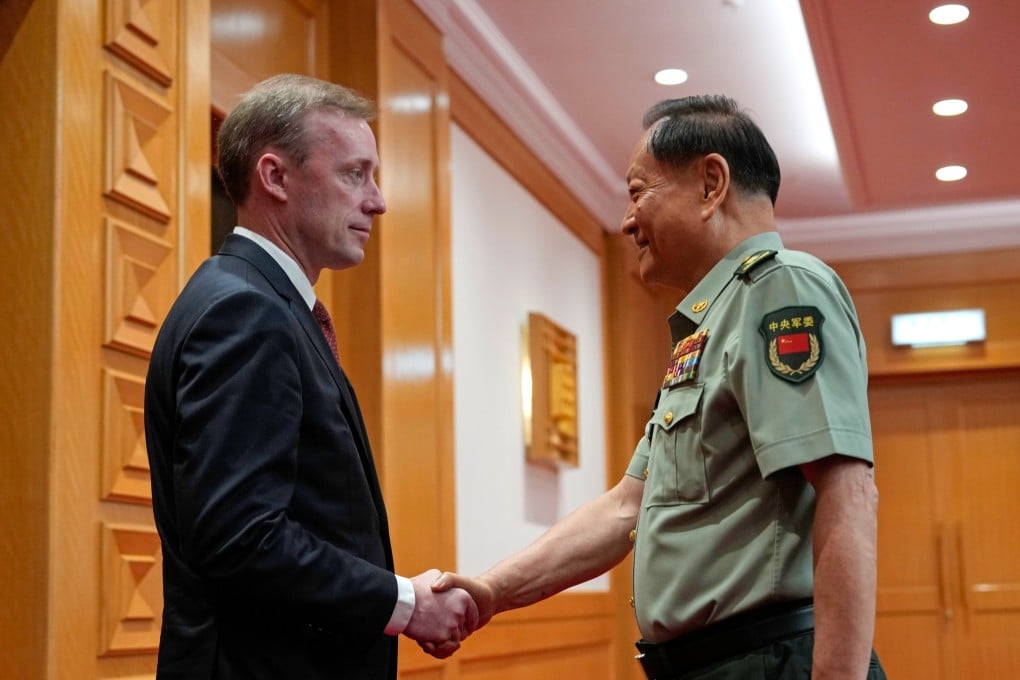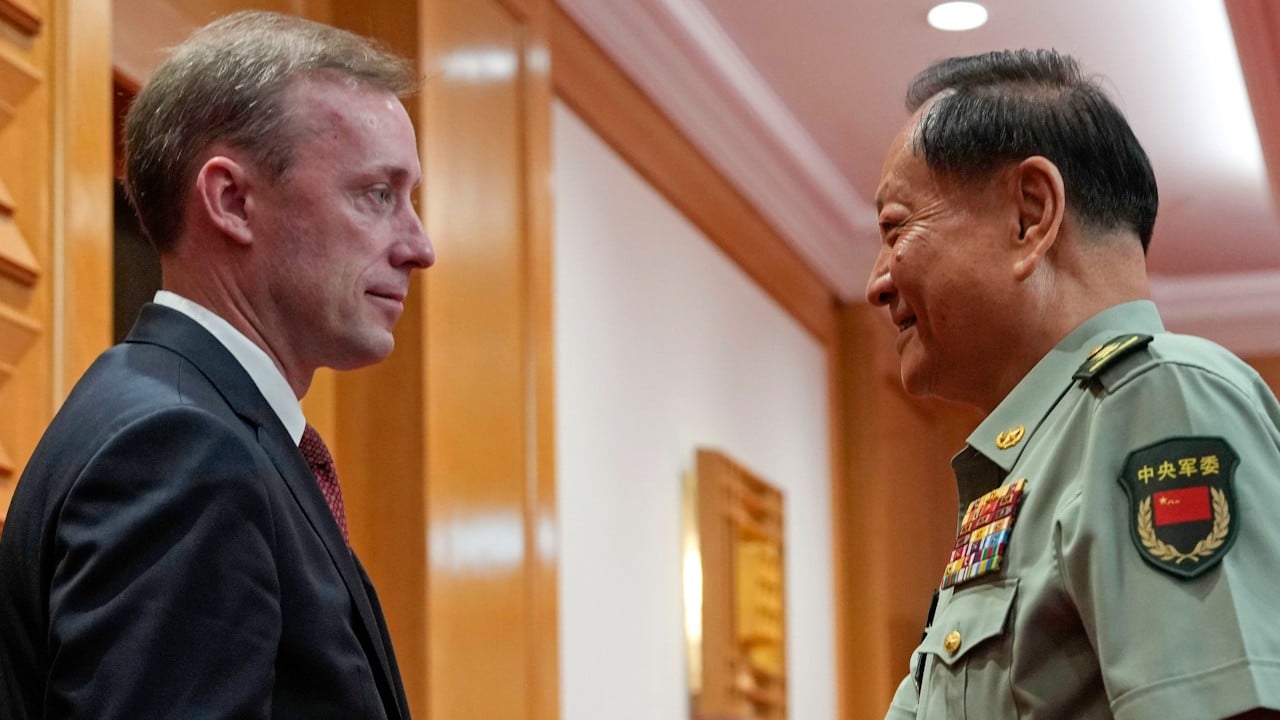Military official tells US’ Sullivan Taiwan is Beijing’s ‘uncrossable first red line’
On last day of China trip, Sullivan says the US values its ‘commitment to freedom of navigation in the South China Sea’: White House

Sullivan is the first White House national security adviser to visit Beijing in eight years.
Zhang told Sullivan that Taiwan was “the heart of China’s core interests” as well as “the foundation of the political basis” of US-China relations, according to an article posted on the Chinese defence ministry’s website.
Zhang demanded that Washington stop its “military ties” with Taiwan, “stop arming Taiwan” and “stop spreading false narratives about Taiwan”, the article said.
“Resolutely opposing Taiwan independence and promoting reunification is the mission and duty of the People’s Liberation Army. We must respond to the reckless provocations of the Taiwan independence forces,” Zhang added.

